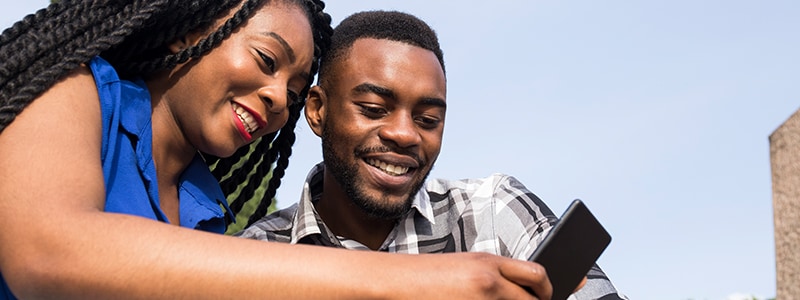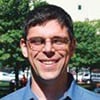Android vs. iOS: Which is better for security?
iOS and Android operating systems and the devices that run them have become targets for malware and viruses. Which is more secure?

It’s little surprise that as consumers increasingly use their smartphones and mobile devices for banking, chatting on social media, and making online purchases, cybercriminals are more often aiming their virus and malware attacks on iPhones, iPads, and Android devices.
The operating systems that power these devices—iOS and Android—then, have become tempting targets for cyberthieves eager to access the most personal information of users.
If safety is your main concern, and you want to keep your Android or iOS device free of viruses and malware, which operating system should you choose? Is Android or iOS the better system when it comes to security?
Unfortunately, there is no simple answer.
iPhones and Androids come with certain security measures.
Android vs. iOS: The threat level
In some circles, Apple’s iOS operating system has long been considered the more secure of the two operating systems. Why? iOS is a closed system. Apple doesn’t release its source code to app developers, and the owners of iPhones and iPads can't easily modify the code on their phones themselves. This makes it more difficult for hackers to find vulnerabilities on iOS-powered devices.
Android devices are the opposite, relying on an open-source code, meaning that the owners of these devices can tinker with the operating system of their phones and tablets. Too much tinkering, and owners might create a weakness in their devices’ security. Then there are manufacturers themselves. If a phone maker puts out a new device with a modification to the Android operating system and there’s a vulnerability in that code, hackers will find it.
Android is more often targeted by hackers, too, because the operating system powers so many mobile devices today. The global popularity of the Android operating system makes it a more attractive target for cybercriminals. Android devices, then, are more at risk of the malware and viruses that these criminals unleash.
But this doesn’t tell the entire story of which system is better when it comes to
security. While iOS may be considered more secure, it’s not impossible for cybercriminals to hit iPhones or iPads with malicious software. Because of this, the owners of both Android and iOS devices need to be aware of possible malware and viruses, and be careful when downloading apps from third-party app stores. It’s safest to download apps from trusted sources, such as Google Play and the Apple App Store, which vet the apps they sell.
Then there are the social engineering attacks in which cybercriminals attempt to trick users into giving up log-in information, access to bank accounts, and other personal data. It doesn't matter what mobile operating system you are using: both iOS and Android users can be equally vulnerable to these types of phishing attacks.
Android and iOS software updates and security updates
Want to help keep your Android phone or tablet safe? Always upgrade your mobile devices to the latest version of the Android OS. Android regularly releases updates. It can be tempting to skip them, especially when life gets busy, and updates take long to install. But these updates are designed to help protect your Android devices against the latest security threats. Ignoring these updates could put your phone or tablet at risk.
Apple’s iOS updates tend to be bigger events, typically prompting iPhone and iPad users to install them as soon as they are released.
Of course, the owners of both Android and iOS devices can turn on automatic updating on their mobile devices. This way, when Android or iOS updates are released, their devices will automatically update to the latest versions of their operating systems. This is a smart choice and will offer you the best protection against viruses.
Hardware integration
Much of the security of an Android device depends on the hardware. Simply put, some manufacturers are better at making sure Android’s built-in security features work correctly.
A good example is Samsung. The Samsung Knox security solution comes pre-installed in all of the company’s phones, tablets, and wearable devices. This platform provides a more secure booting process, helping to prevent unauthorized software from loading when a user turns on a Samsung mobile device.
How to stay safe on Android and iOS
Many users find Android attractive because it is a more open operating system. This means, though, that you need to be more cautious. But keep in mind, you also must be cautious with iOS.
Consider all the apps you download. Downloading a rogue app is the easiest way to infect your Android phone, tablet, or wearable device with malware or a virus. The same can be true for iOS, especially if you download an app from a third-party source. That’s why it’s important to download apps only from reputable sources.
Your best bet? For Android, stick to the Google Play store. Google Play features countless apps. You really have no reason to download Android apps from any other location. If you do venture outside Google Play, you could likely increase your chances of downloading an infected app. The same goes for iOS. It’s always the better choice to go to the Apple App Store for your apps.
Android vs. iOS: How does the mobile operating system of each impact their security?
Android operating system
Popularity: The Android operating system is hugely popular. This means that developers are constantly building new apps designed to run on the system. That’s good for users ... mostly. The problem comes when hackers create apps designed to infect your mobile devices. There is an app review process for Google Play. Unfortunately, the process is far less stringent than what developers face when adding apps to Apple’s App Store. It's easier, then, for malicious apps to sneak onto the Google Play store and easier for users to accidentally install one. One of the main issues is that the end user can go into an Android device and enable the installation of software from unknown sources. This means that you can install software on the Android device that does not come from the Google PlayStore. The software—or APK, as it’s called—can be downloaded and installed from a website bypassing the Google PlayStore review.
Open source: Android owners can modify the source code of their Android devices. This makes the system a better choice for users who want the flexibility to change the way their mobile devices run. But it can also make Android devices vulnerable to attacks. When altering their device’s source code, users could accidentally leave an opening for cybercriminals.
Fragmented: Unlike the iOS operating system that only runs on Apple-branded products, the Android operating system runs on mobile devices manufactured by a host of companies. Some companies might provide hardware that is more secure than others. Moreover, the manufacturer of the device can use a custom ROM or base operating system that has software installed that cannot be easily removed or analyzed for malicious intent.
Apple’s iOS
More stringent controls: It’s more difficult for developers to get apps into the App Store. That’s because the review process is more stringent. Because of this, it’s less likely for a malicious app to sneak into Apple’s store.
Less flexibility: Apple doesn’t allow the owners of its devices to modify its iOS operating system or custom ROMs to be loaded on their devices. That makes the system more secure since Apple controls the complete experience. This doesn’t stop some owners from “jailbreaking” their Apple mobile devices, modifying their source code on their own. Jailbreaking opens new capabilities on the devices — such as changing digital-assistant Siri’s voice, for instance. Be careful if you do this: Apple won’t provide support to such devices.
A less tempting target: Because the iOS operating system powers fewer mobile devices, hackers don’t target the system as often. This makes sense: Hackers and cybercriminals can ensure more victims if they focus more of their attacks on the more popular Android operating system.
Editorial note: Our articles provide educational information for you. Our offerings may not cover or protect against every type of crime, fraud, or threat we write about. Our goal is to increase awareness about Cyber Safety. Please review complete Terms during enrollment or setup. Remember that no one can prevent all identity theft or cybercrime, and that LifeLock does not monitor all transactions at all businesses. The Norton and LifeLock brands are part of Gen Digital Inc.







Want more?
Follow us for all the latest news, tips, and updates.